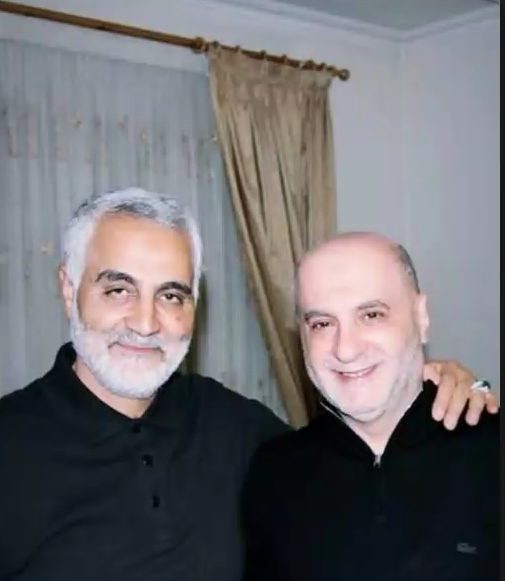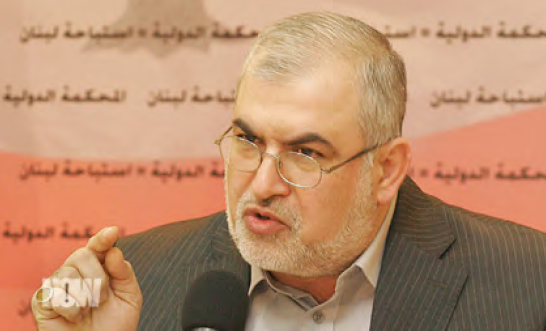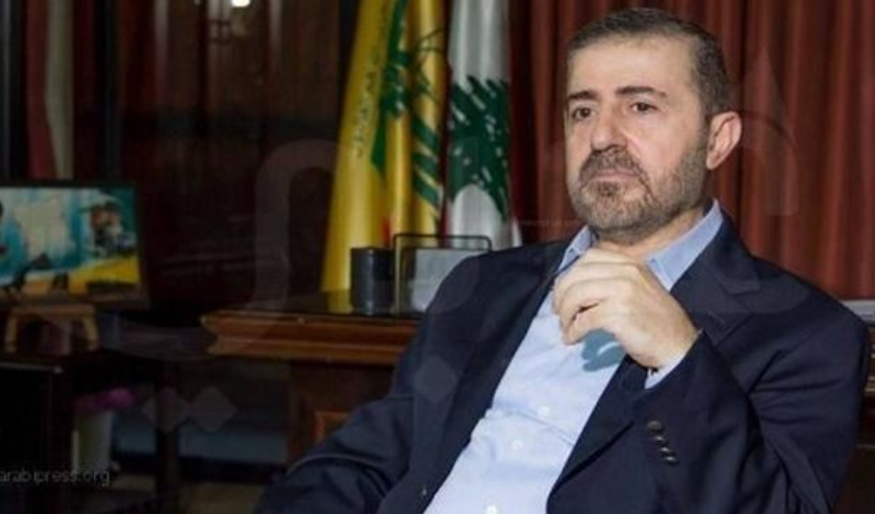Washington – Today, the U.S. Department of the Treasury’s Office of Foreign Assets Control (OFAC) designated key Hizballah political and security figures leveraging their privileged positions to facilitate Hizballah’s malign agenda and do Iran’s bidding. Specifically, OFAC designated Hizballah Members of Parliament Amin Sherri and Muhammad Hasan Ra’d, and Hizballah security official Wafiq Safa, for acting for or on behalf of Hizballah. These individuals were designated under Executive Order (E.O.) 13224, which targets terrorists and those providing support to terrorists or acts of terrorism.
“Hizballah uses its operatives in Lebanon’s parliament to manipulate institutions in support of the terrorist group’s financial and security interests, and to bolster Iran’s malign activities” said Sigal Mandelker, Treasury’s Under Secretary for Terrorism and Financial Intelligence. “Hizballah threatens the economic stability and security of Lebanon and the wider region, all at a cost to the Lebanese people. The United States will continue to support efforts of the Lebanese government to protect its institutions from exploitation by Iran and its terrorist proxies, and to secure a more peaceful and prosperous future for Lebanon.”
This action highlights how Hizballah uses its political power to corrupt and exploit Lebanon’s financial and security elements, taking advantage of the country’s democratic system and values. Today’s designations also underscore that there is no distinction between Hizballah’s political and violent activities. Hizballah itself makes no distinction between its military and political wings, as Hizballah’s own leaders have acknowledged publicly, including Muhammad Hasan Ra’d, who said in 2001, “Hizballah is a military resistance party…. There is no separation between politics and resistance.”
Amin Sherri and Muhammad Hasan Ra’d are Hizballah members of the Lebanese Parliament. As a Hizballah Member of Parliament, Sherri exploits his political office to advance Hizballah's objectives, which often run counter to the benefit of the Lebanese people and government. His efforts to threaten Lebanese financial institutions on behalf of Hizballah, as noted below, demonstrate the extreme steps he takes to advocate for Hizballah’s agenda of intimidation and violence, at the cost of a legitimate sector that is the backbone of the Lebanese economy. Sherri’s behavior threatening bank employees and their family members is unacceptable for a Member of Parliament whose office should advance the interests of the Lebanese people.
Ra'd is both a Member of Parliament and a member of Hizballah’s Shura Council, which directs Hizballah units to carry out overseas military and terrorist attacks. As Hizballah's “highest command,” the Shura Council is responsible for deciding religious and strategic matters, and has overall administrative, planning, and policy-making powers. Rather than advocating for political decisions that would address the economic plight of the communities he represents, he continues to prioritize Hizballah’s activities and hold Lebanon’s prosperity hostage. The designation of Ra’d who heads Hizballah’s Parliamentary Council, one of the Shura Council’s five subordinate councils, builds upon previous actions targeting Hizballah’s Shura Council.[1]
The third individual designated today, Wafiq Safa, serves as a Hizballah interlocutor to the Lebanese security forces. As the head of Hizballah's security apparatus, which is directly linked to Secretary General Hassan Nasrallah, Safa has exploited Lebanon's ports and border crossings to smuggle contraband and facilitate travel on behalf of Hizballah, undermining the security and safety of the Lebanese people, while also draining valuable import duties and revenue away from the Lebanese government.
Hizballah was designated by the Department of State as a Foreign Terrorist Organization in October 1997 and as a Specially Designated Global Terrorist (SDGT) pursuant to E.O. 13224 in October 2001. It was listed in January 1995 in the Annex to E.O. 12947, which targets terrorists who threaten to disrupt the Middle East peace process, and also designated in August 2012 pursuant to E.O. 13582, which targets the Government of Syria and its supporters.
AMIN SHERRI
Amin Sherri (Sherri) was designated for acting for or on behalf of Hizballah.
As a Hizballah Member of Parliament, Sherri serves as an interlocutor for Hizballah's interests within the Lebanese community and has used the weight of his representative role within Hizballah to influence decision making and pressure financial institutions to assist Hizballah in limiting the impact of U.S. sanctions. For example, Sherri, on behalf of Hizballah, threatened Lebanese bank officials and their family members after the bank froze the accounts of U.S.-designated Hizballah member, whom OFAC designated as an SDGT for assisting in, sponsoring, or providing financial, material, or technological support for, or financial or other services to or in support of, Hizballah.
Sherri’s illicit activities are also apparent in his extensive ties to other Hizballah associates and financiers. Sherri has maintained a close relationship with Adham Tabaja, a Hizballah financier, whom OFAC designated as an SDGT in June 2015 for providing support and services to Hizballah. Sherri and Tabaja have continued to do business together despite the latter’s designation. Sherri and Tabaja, among others, founded and were involved in a Lebanon-based company. Sherri also facilitated Tabaja's access to Lebanese banks and was directed by Hizballah Secretary General Nasrallah to settle issues related to his designation.
Underscoring the lack of distinction between Hizballah’s political and military activities, Sherri also appears publically with Islamic Revolutionary Guard Corps-Qods Force (IRGC-QF) Commander Qasem Soleimani, whom OFAC designated in October 2011, for acting for or on behalf of the IRGC-QF (see photo below).

Photo of Qasem Soleimani (left) and Amin Sherri (right)
MUHAMMAD HASAN RA’D
Muhammad Hasan Ra’d (Ra’d) was designated for acting for or on behalf of Hizballah.
Ra'd was elected to Hizballah’s Shura Council in 2009 and is part of Hizballah Secretary General Nasrallah's inner circle. Ra’d also is the head of Hizballah’s Parliamentary Council, which consists of Hizballah Members of Parliament, and oversees how the Loyalty to the Resistance Bloc operates. Additionally, this council ensures that parliamentary representatives, such as Ra’d and Sherri, carry out Shura Council decisions and policies, and conform to the party’s agenda.
Ra’d also has ties to Hizballah associates and financiers. In 2017, Ra’d met with Hizballah businessmen Adham Tabaja and Husayn Ali Fa'ur to ensure Hizballah's funding mechanisms would remain open despite sanctions. OFAC designated Husayn Ali Fa’ur as an SDGT in June 2015 for providing support and services to Hizballah. Additionally, Ra'd and Wafiq Safa maintained a list of a hundred Hizballah members who were to acquire foreign citizenship. With these passports, these individuals would be sent by Hizballah on long-term missions to Arab and Western countries.

Photo of Muhammad Hasan Ra’d
WAFIQ SAFA
Wafiq Safa (Safa) was designated for acting for or on behalf of Hizballah.
Safa is in charge of Hizballah's Liaison and Coordination Unit and is responsible for Hizballah’s coordination with the international community and with Lebanese security agencies. Safa was appointed by Hizballah Secretary General Nasrallah in 1987 as the head of the Security Committee, which was later renamed the Liaison and Coordination Unit. As one of Hizballah's prominent leaders, Safa is a part of Hizballah Secretary General Nasrallah's inner circle.
As the head of Hizballah's security apparatus, Safa has exploited Lebanon's ports and border crossings to smuggle contraband and facilitate travel on behalf of Hizballah. For example, Hizballah leveraged Safa to facilitate the passage of items, including illegal drugs and weapons, into the port of Beirut, Lebanon. Hizballah specifically routed certain shipments through Safa to avoid scrutiny. Additionally, as of 2018, Hizballah facilitated favors at the Beirut airport. Safa also facilitated travel for Hizballah associates through a border crossing.
Safa also has ties to Hizballah associates and financiers. Safa maintained a close relationship with Hizballah financier Adham Tabaja. Additionally, Safa and Ra'd maintained a list of a hundred Hizballah members who were to acquire foreign citizenship. With these passports, these individuals would be sent by Hizballah on long-term missions to Arab and Western countries.
In 2010, there were internal Hizballah accusations of corruption involving Safa; however, Hizballah has since continued to allow him to maintain a prominent role in the organization. Safa was accused of smuggling, other crimes, and immoral behavior.

Photo of Wafiq Safa
SANCTIONS IMPLICATIONS
The Treasury Department continues to prioritize disruption of the full range of Hizballah’s illicit financial activity, and with this action has designated 50 Hizballah-affiliated individuals and entities since 2017.
As a result of today’s action, all property and interests in property of these targets that are in the United States or in the possession or control of U.S. persons must be blocked and reported to OFAC. OFAC’s regulations generally prohibit all dealings by U.S. persons or within the United States (including transactions transiting the United States) that involve any property or interests in property of blocked or designated persons. In addition, persons that engage in certain transactions with the individuals and entities designated today may themselves be exposed to sanctions or subject to an enforcement action.
Furthermore, the three individuals designated today are subject to secondary sanctions pursuant to the Hizballah Financial Sanctions Regulations, which implements the Hizballah International Financing Prevention Act of 2015, as amended by the Hizballah International Financing Prevention Amendments Act of 2018. Pursuant to this authority, OFAC can prohibit or impose strict conditions on the opening or maintaining in the United States of a correspondent account or a payable-through account by a foreign financial institution that knowingly facilitates a significant transaction for Hizballah, or a person acting on behalf of or at the direction of, or owned or controlled by, Hizballah.
View identifying information related to today’s action here.
####
[1] On May 16, 2018, the United States, in partnership with the Kingdom of Saudi Arabia, the co-chair of the Terrorist Financing Targeting Center (TFTC), and the other TFTC member states – the Kingdom of Bahrain, the State of Kuwait, the Sultanate of Oman, the State of Qatar, and the United Arab Emirates – designated members of Hizballah’s Shura Council. Specifically, on that day, OFAC, together with Gulf partners, designated Hasan Nasrallah, the Secretary General of Hizballah. OFAC and the TFTC nations further designated Naim Qasim, Muhammad Yazbak, Husayn Al- Khalil, and Ibrahim al-Amin al-Sayyid pursuant to E.O. 13224, which targets terrorists and those providing support to terrorists or acts of terrorism. OFAC previously designated Hizballah Secretary General Nasrallah pursuant to E.O. 12947, “Prohibiting Transactions with Terrorists Who Threaten to Disrupt the Middle East Peace Process,” on January 23, 1995 and pursuant to E.O. 13582, “Blocking Property of the Government of Syria and Prohibiting Certain Transactions with Respect to Syria,” on September 13, 2012.
